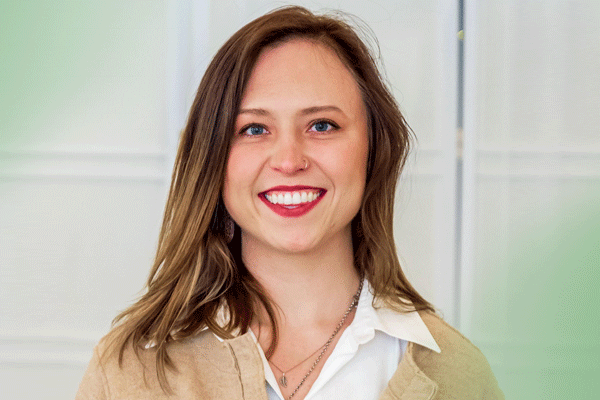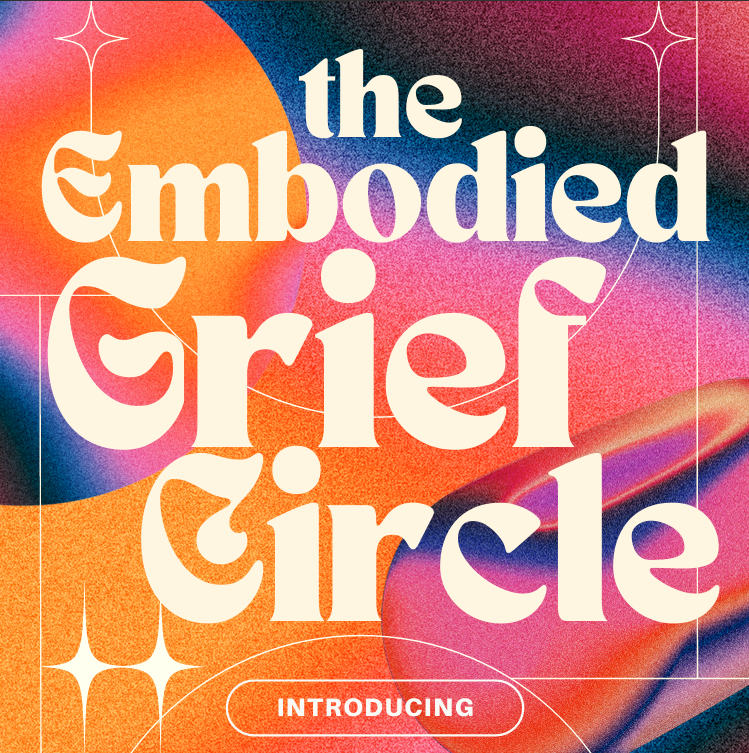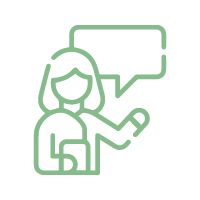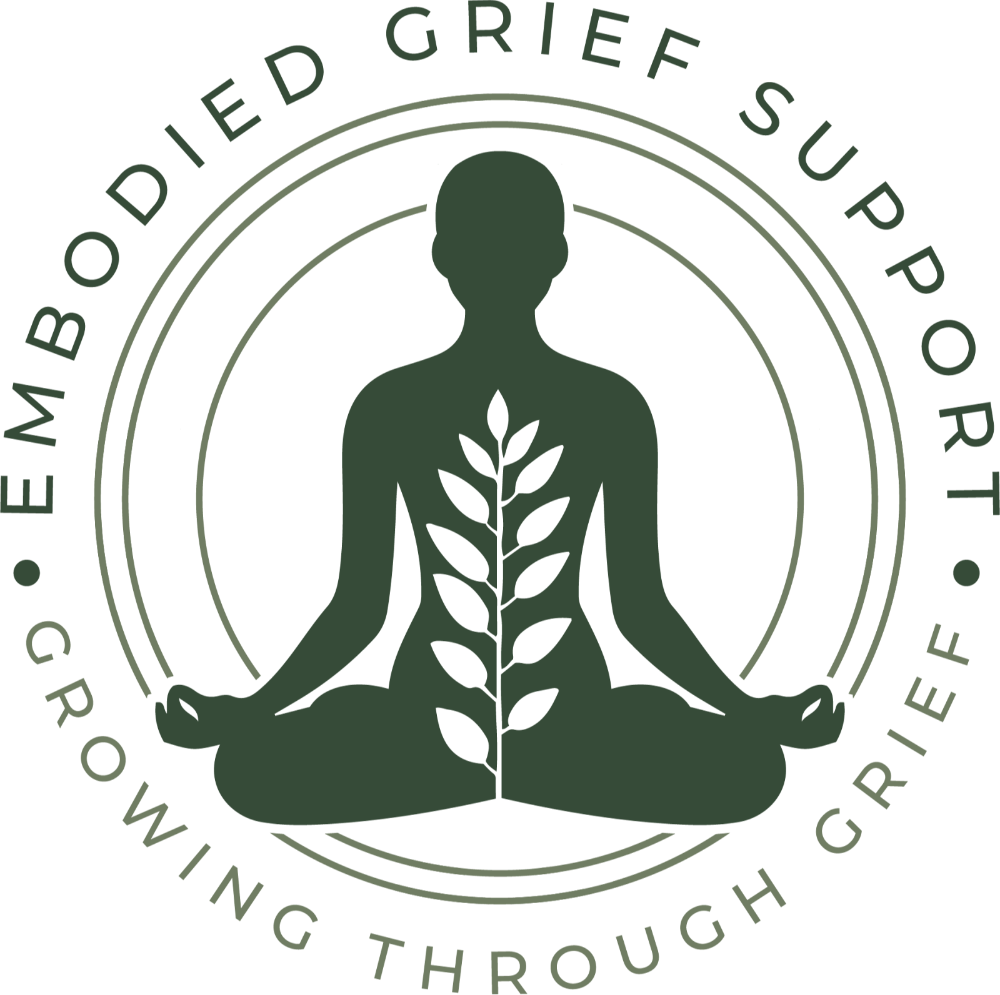Services
Embodied Grief Support by Cami Thelander
Welcome to Embodied Grief Support , where we embrace a whole-person, body-centered approach to healing from life’s deepest losses. I’m Cami Thelander, an Advanced Certified Grief Coach, Yoga Instructor, and Craniosacral Therapist. I specialize in a holistic method to navigate life after loss, empowering you to process your grief healthily and confidently.

Holistic Grief Healing
About My Approach
My approach to grief support goes beyond traditional talk therapy. Rooted in an integrative blend of mindfulness, body-awareness, and nervous system regulation strategies, I aim to support you in transforming the pain of grief into a life filled with meaning and purpose. By working with the entire person – mind, body, and spirit – my goal is to help you build a personalized toolbox of resources that you can turn to, allowing you to confidently navigate your grief journey without long-term dependence on external support.
Support Options
What We Offer
I offer both private sessions and group coaching settings, tailored to your unique grief experience. In our work togther, here’s what we will cover:
Understand How Your Loss Has Changed You: Explore your changed identity and the profound impacts of your loss.
Gain Clarity on Your Vision: Help you envision a new future and set meaningful goals.
The Body, Stress, and Physical Well-being: Use body-centered techniques to alleviate the physical manifestations of grief and reduce stress.
Emotional Resilience & Healthy Grief Processing: Develop strategies to build emotional resilience and process your grief in a healthy manner.
Personalized Plan to Manage Triggers: Create a tailored plan to manage grief triggers and navigate tough dates and anniversaries.
Establishing Your Support Network: Establish a robust support system and build confidence in identifying your needs and seeking the right support.
Transforming Limiting Beliefs & Mastering Mindset: Work through limiting beliefs, guilt, or ruminating thoughts and foster a positive, growth-oriented mindset.
How to Honor & Remember Your Person: Develop meaningful ways to honor and remember your loved one.
Finding Meaning & Purpose: Gain clarity on your life’s purpose and discover ways to bring meaning back into your life.
The goal of Embodied Grief Support is to equip you with a comprehensive set of tools to process your grief in a healthy way while honoring and remembering your loved one. By co-creating this personalized toolbox, you will feel empowered to navigate your grief confidently and independently, finding a new sense of purpose and meaning in your life.
Session Options
I offer flexible session options to cater to your unique needs and preferences. Whether you prefer individualized attention or the supportive environment of a group, there is an option to suit your grief journey.

Private Coaching Sessions
For those who seek a personalized, one-on-one experience, private sessions provide dedicated support tailored specifically to you. In these sessions, we will:
Focus on Your Unique Grief Journey: Receive individualized attention and customized strategies that address your specific needs and challenges.
Create a Personalized Toolbox: Develop a set of resources and techniques that you can rely on to navigate your grief.
Schedule Flexibility: Arrange sessions at times that best fit your schedule, ensuring convenience and consistency in your support.
Monthly Grief Group
The Embodied Grief Circle is a free, monthly drop-in group designed to provide compassionate support for anyone navigating the journey of grief. This unstructured space offers a safe environment to simply be, connect with others who understand, and explore the shared experience of loss.
Open to all, this circle allows you to come as you are and find solace in community, without commitment or cost. Whether you need a place to share, listen, or just feel supported, this is a space for you.
Share and Connect: Benefit from the shared experiences and insights of others who understand what you’re going through.
Learn and Grow Together: Engage in collaborative learning and collective healing, supported by group discussions and activities.
Build a Support Network: Develop meaningful connections and a sense of camaraderie with fellow group members.

The Body's Role in Grieving
The Importance of a Body-Centered Approach to Grief
Grief is not only an emotional and mental experience but also a profoundly physical one. The stress of grief can deeply impact the body, often trapping it in a state of fear and survival mode. This can prevent individuals from moving forward in their healing journey.
Grief is not only an emotional and mental experience but also a profoundly physical one. The stress of grief can deeply impact the body, often trapping it in a state of fear and survival mode. This can prevent individuals from moving forward in their healing journey.

The Role of the Nervous System
When we experience grief, our nervous system can become overwhelmed, leading to prolonged activation of the stress response. This state, often referred to as "fight, flight, or freeze," is the body's natural reaction to perceived threats. However, grief can cause the body to get stuck in this mode, resulting in:
Chronic Stress: Persistent feelings of anxiety and tension, always feeling like something is “off” and unable to relax.
Physical Symptoms: Fatigue, headaches, muscle pain, insomnia, digestive issues, and other stress-related ailments.
Emotional Numbness: Difficulty in feeling emotions fully or connecting with others.
The Body in Survival Mode
In survival mode, the body's focus is on immediate safety rather than long-term healing. This can manifest as:
Avoidance: Avoiding places, people, or activities that remind one of the loss.
Hypervigilance: Constantly being on edge, expecting something bad to happen
Isolation: Withdrawing from social interactions to avoid emotional pain.
This state hinders the grieving process, making it challenging to take steps forward and find a new sense of normalcy.


The Missing Piece: A Holistic Approach
Traditional therapy and counseling often focus primarily on the mind, addressing thoughts and emotions. While this is crucial, it can overlook the significant role the body plays in grief. A holistic, body-centered approach to grief includes:
Nervous System Regulation: Techniques such as mindfulness, breathwork, and gentle movement to calm the nervous system and shift out of survival mode.
Body Awareness: Practices that help individuals become aware of and release physical tension and stress held in the body.
Integrative Healing: Combining mental and emotional support with physical practices to create a comprehensive healing experience.
By addressing the body along with the mind, a body-centered approach helps to release the physical manifestations of grief, enabling individuals to move forward more freely and with greater resilience. This holistic method ensures that the entire being—mind, body, and spirit—is supported through the healing journey.
Private Grief Coaching
Grief can feel overwhelming, leaving you uncertain about how to move forward. My private grief coaching services provide compassionate, one-on-one support to help you navigate loss and rebuild your life with confidence. Using a holistic approach that integrates mindfulness, stress management techniques, and personalized coping tools, we’ll work together to process your grief in a healthy way. Whether you’re seeking emotional resilience, guidance in managing stress, or a path to finding purpose after loss, private coaching offers a safe and supportive space for healing.
What to Expect: Private grief coaching is a personalized, compassionate journey designed to support you through the complexities of loss. Sessions are tailored to your unique needs, offering a safe space to process your grief, manage stress, gain personalized coping strategies, and rebuild a life filled with meaning and purpose.
Ready to take the next step? Let’s create a path to healing that honors your grief and supports your unique journey.
Ready to book your first session and get started?
Program Length: Most clients find that a 10–12 week program allows us to explore all aspects of their grief and develop a comprehensive toolbox of coping strategies and resources. However, the program is flexible and can be adjusted to fit what feels best for you. You’re welcome to book as many or as few sessions as you need.
Session Details: Each session is 90 minutes and conducted over Zoom, providing the convenience of meeting from your own space. Sessions are typically held weekly to maintain momentum and provide consistent support, though the schedule can be adapted to suit your preferences. Support between sessions is also available if needed, and includes unlimited messages over email or text.
Pricing: The cost is $149 per 90-minute session. This investment in your healing offers focused, one-on-one guidance to help you confidently navigate life after loss, equipping you with the tools you need to process your grief without long term dependence on external support.
Understanding the Difference
Coaching vs. Therapy

Focus of Therapy
Therapy is often centered on diagnosing and treating mental health conditions. Therapists are trained to help individuals understand and resolve deep-seated psychological issues, often exploring past experiences and traumas to promote healing.
While therapy can be an essential component of healing after a significant loss, it might not address all aspects of the grieving process. Traditional therapy often focuses primarily on the mind and emotions, potentially overlooking the profound physical and neurological impacts of grief. Without incorporating body-centered approaches, individuals may struggle with chronic stress, physical symptoms, and feeling stuck in survival mode. A holistic approach that integrates body awareness and nervous system regulation can provide a more comprehensive path to healing, helping individuals process their grief on all levels.
If you’ve tried therapy and feel like it’s not giving you what you need, then coaching might be a better option for you.

Focus of Coaching
In contrast, coaching is forward-looking and growth-oriented, emphasizing personal development and empowerment. As a grief coach, my role is to guide you in discovering your own answers and solutions, rather than imposing expertise. I believe that you are the expert of your life and your grief. Although I can help you get the proper support needed to work through the challenges, you are the one deciding what’s best for you – not me. Coaching is especially helpful for those who feel stuck in their grief and are seeking practical ways to take steps forward in their life. Coaching focuses on:
Uncovering Inner Wisdom: Helping you tap into your own insights and strengths to find solutions and make informed decisions.
Setting Goals and Taking Action: Supporting you in setting meaningful goals and developing actionable plans to achieve them.
Empowerment and Growth: Facilitating personal growth and transformation by focusing on your capabilities and potential.
Why Embodied Grief Support?
Holistic Approach: A whole-person approach addressing mind, body, and spirit.
Personalized Toolbox: Tailored strategies and resources for your unique grief experience.
Empowerment: Focused on building your confidence to manage grief independently.
Mind-Body Connection: Emphasizes mindfulness, body-awareness, and nervous system regulation to facilitate deep healing.
Safe, Nonjudgmental Space: Dedicated to holding a space where you can process your grief without fear of judgment.
Comprehensive Support: Private and group coaching options to suit your preferences.
An interview with Cami Thelander
Embodied Grief Support

Copyright © 2024 Embodied Grief Support. All rights reserved.